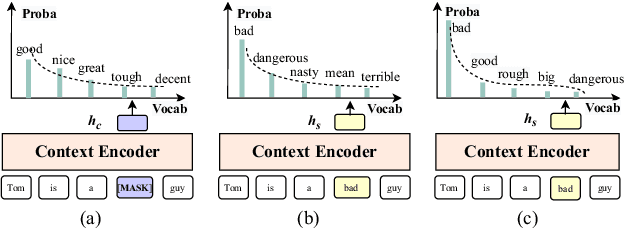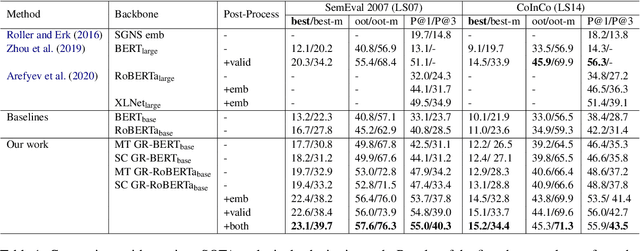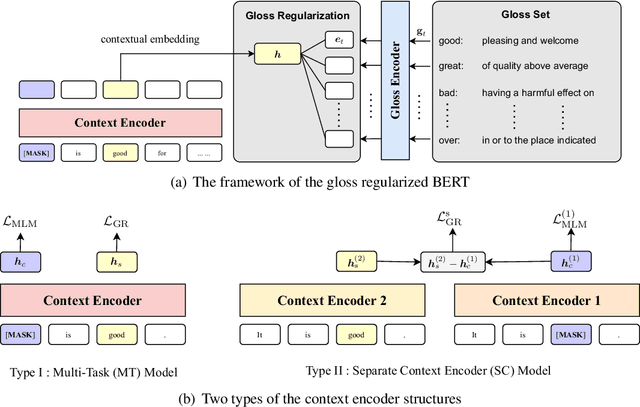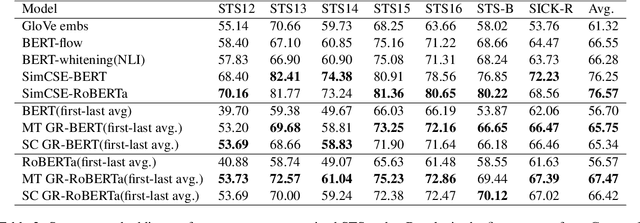Improving Contextual Representation with Gloss Regularized Pre-training
Paper and Code
May 13, 2022



Though achieving impressive results on many NLP tasks, the BERT-like masked language models (MLM) encounter the discrepancy between pre-training and inference. In light of this gap, we investigate the contextual representation of pre-training and inference from the perspective of word probability distribution. We discover that BERT risks neglecting the contextual word similarity in pre-training. To tackle this issue, we propose an auxiliary gloss regularizer module to BERT pre-training (GR-BERT), to enhance word semantic similarity. By predicting masked words and aligning contextual embeddings to corresponding glosses simultaneously, the word similarity can be explicitly modeled. We design two architectures for GR-BERT and evaluate our model in downstream tasks. Experimental results show that the gloss regularizer benefits BERT in word-level and sentence-level semantic representation. The GR-BERT achieves new state-of-the-art in lexical substitution task and greatly promotes BERT sentence representation in both unsupervised and supervised STS tasks.
 Add to Chrome
Add to Chrome Add to Firefox
Add to Firefox Add to Edge
Add to Edge